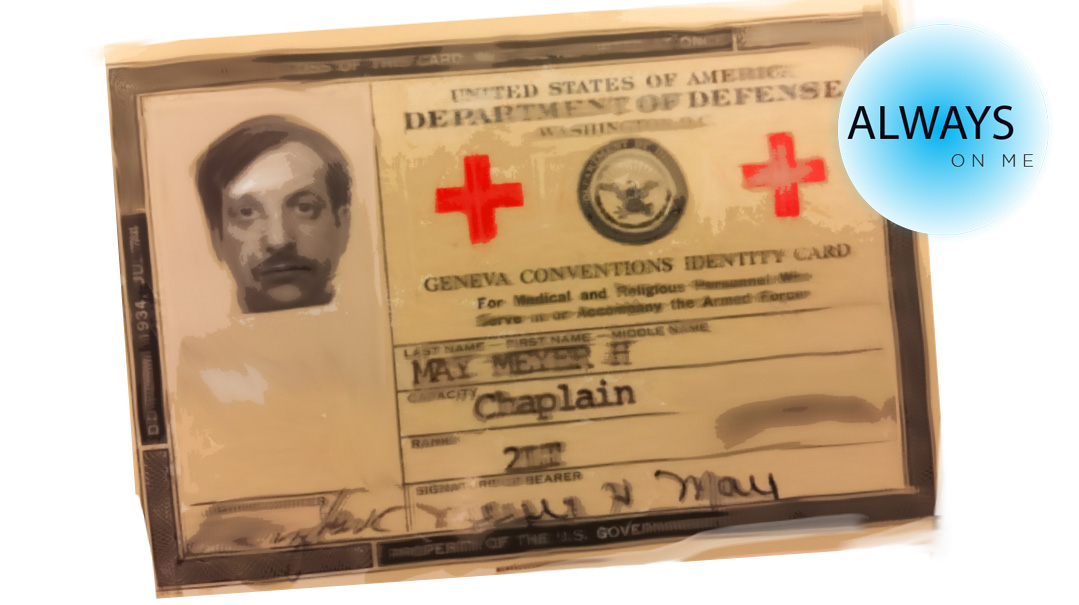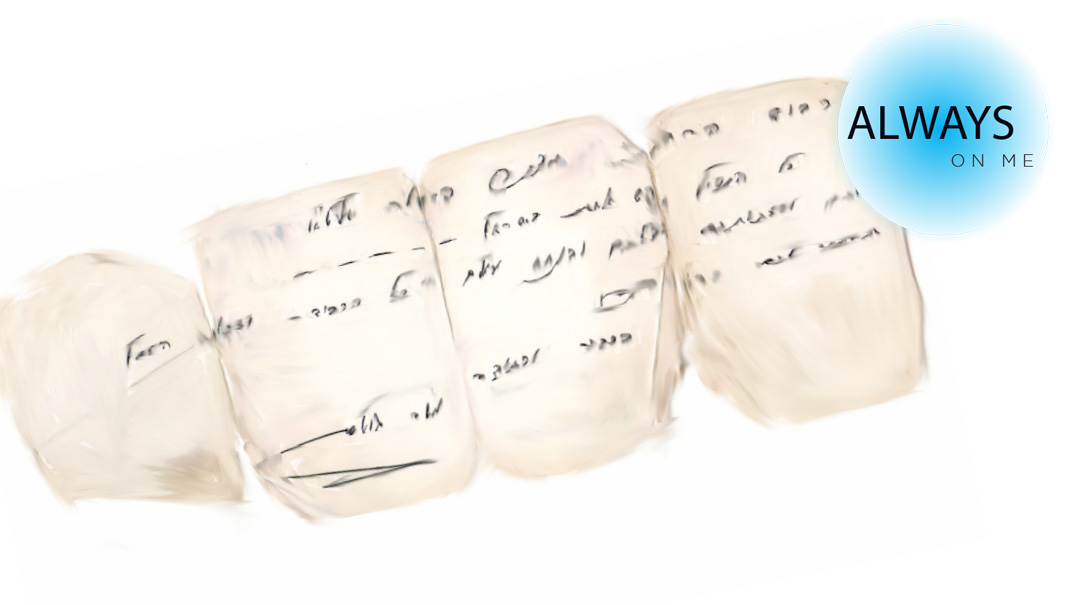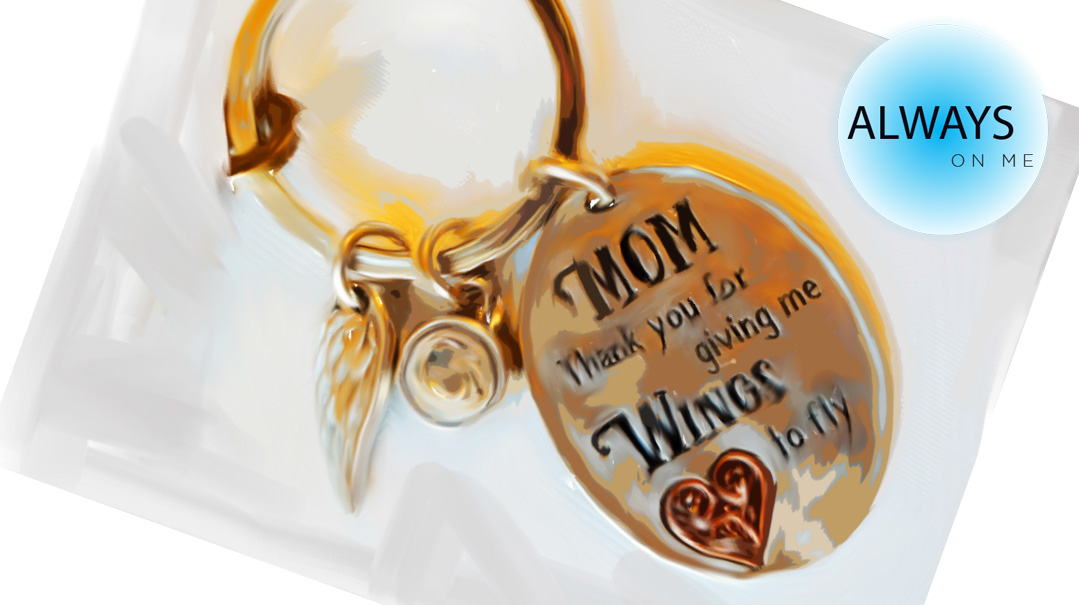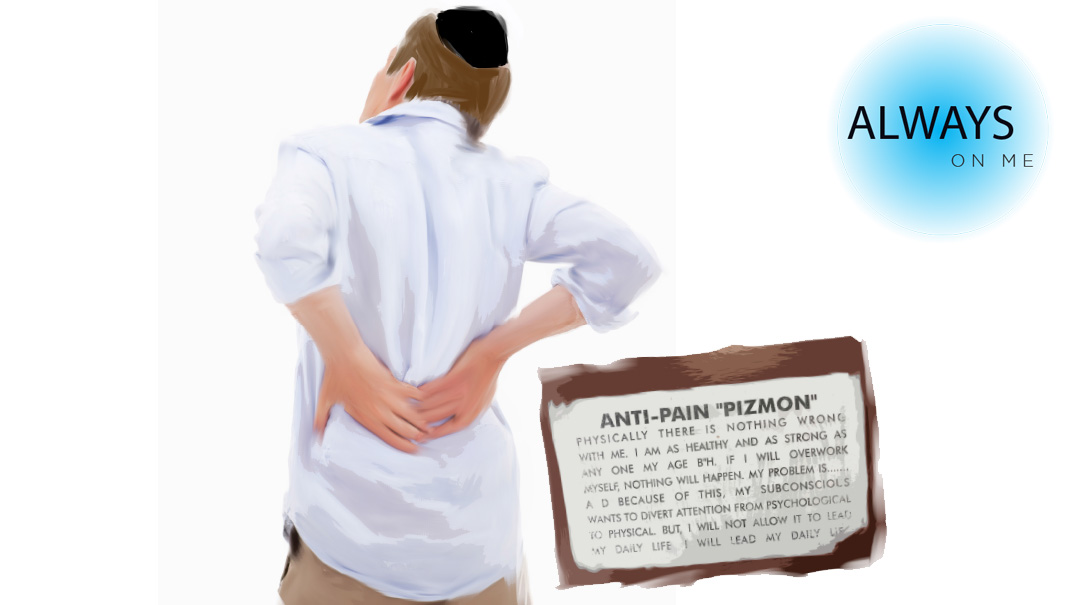Indelible
| May 11, 2021Is there something you always carry on you, even if it’s seen better days?
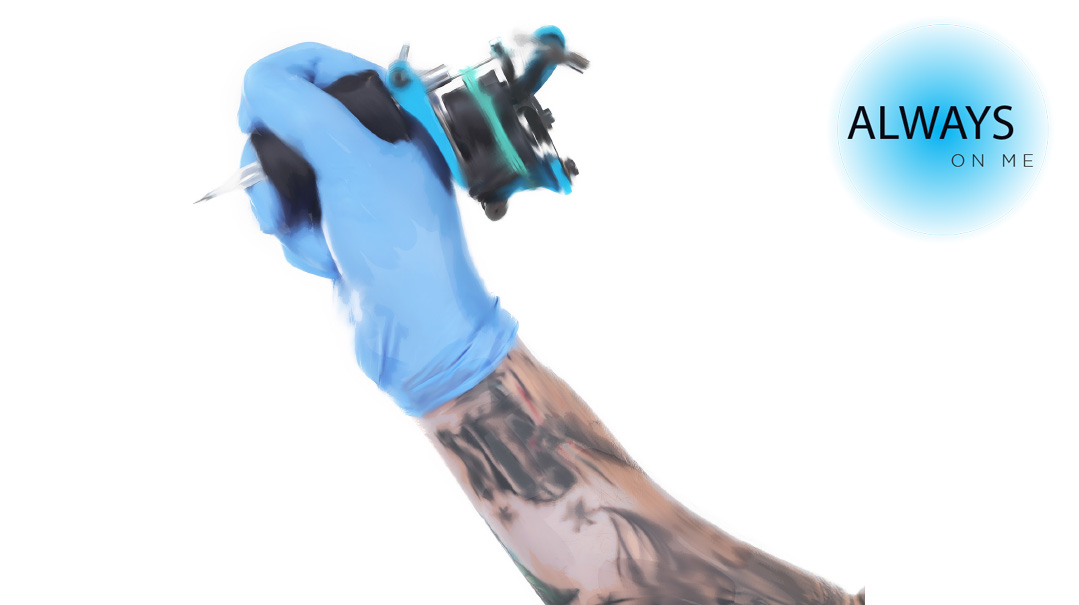
Project coordinator: Rachel Bachrach
Illustrations: Menachem Weinreb
A few years ago, I got a call from the father of a student.
“Did you know that during bein hazmanim, the boys went to the beach and to a concert?!” His tone bordered on hysteria. “And our Chaim was wearing” —he paused, choking on the words— “a T-shirt and shorts!”
Ah.
“A lot of bochurim test the waters during bein hazmanim,” I explained carefully. “How a bochur dresses then may actually be his way of testing himself, to see if the growth he made over the year is real or if, by wearing his old clothes, he’s still the person he was before he started rocking the yeshivish levush.”
But Chaim’s father wasn’t listening.
“Think about how this will affect his shidduchim!” he interrupted me. “And not just his, but we have two girls right after him — what will this do to their shidduchim?! Why does he dress one way in yeshivah and another way outside? Doesn’t he understand how that looks?!”
I was amazed. A year ago Chaim kept no schedule, seemed depressed, and was completely uninterested in learning. Now he dresses like a mensch, maintains a good schedule, learns b’chavrusa with the rosh yeshivah once a week, and feels like he’s made it. Why are his parents obsessing over how he dresses on a trip?
“Reb Pinchos,” I told Chaim’s father, “We tend to focus on the present and the future and forget the past. Can we remember for a moment who Chaim was, and where he was, and acknowledge how far he’s come? Chaim is happy, confident, and self-aware. He’ll make an excellent husband and father — and most of the credit goes to you and your wife, Chaim’s incredible parents, who imbued him with amazing middos.”
Chaim’s father was living in fear that what he sees at this moment will exist forever. But I know that’s not true. Chaim’s father knows I started off in kollel, then became a maggid shiur, then a menahel, and now I head a yeshivah. What he doesn’t know is that when I was 21, I took an extended break from Yiddishkeit for seven-plus years. I still carry the scars from that time with me everywhere I go.
Literally. Because tattoos are permanent.
Tattoos aren’t uncommon among baalei teshuvah or young adults who left the fold and then returned, but among rebbeim in mainstream yeshivos, an FFB rabbi with tattoos is basically unheard of.
I am proof for my talmidim that the past isn’t a reason not to move forward. No matter how far a bochur strays, I can relate and he can always be open with me. I cannot judge unfavorably — in fact, I don’t judge at all. How can I, when I literally wear my experience in visible and permanent ink on my skin?
Every day I am faced with who I am and what I’ve done. In the mirror, in the mikveh, in the shower, I see what I did to my arms, my back, my chest. But I don’t see shame or failure. I see how far I’ve come, and I know that today holds the endless promise that you can keep growing and that nothing, be it visible or perception, can hold you back, no matter who you are or what you’ve done. That is what I carry with me always. I wear it on my skin, in permanent ink.
Rabbi Shlomo Twerski is a menahel of a yeshivah in Yerushalayim.
(Originally featured in Mishpacha, Issue 860)
Oops! We could not locate your form.

